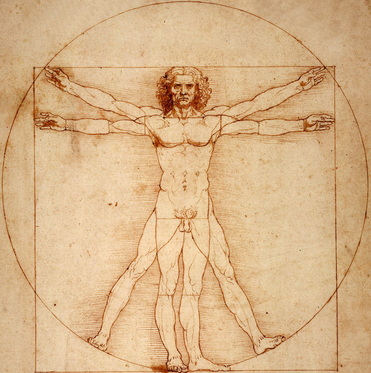What can homeopathy treat?

Almost anything. Since homeopathy stimulates a healing response in your body and it is your body that heals the root cause of your symptoms - see more on this below - homeopathic treatment is well suited to most, if not all, conditions.
Conditions that are particularly well suited to homeopathic treatment include: allergies and allergic conditions; childhood ailments; autoimmune disorders; anxiety and depression; insomnia and sleep issue; digestive disorders; hormone and endocrine issues, including PMS and menopause issues; headaches and migraines; autism; respiratory issues; and pregnancy.
Who can be treated with homeopathy?
Everyone. Since homeopathic medicine is devoid of all chemical toxicity, homeopathy is suitable for everyone, including pregnant women, newborn babies, the elderly and people with compromised immune systems.
What is homeopathy?
The Short Answer
Homeopathy is a holistic system of medicine that uses ultra-dilutions of natural substances to trigger a healing reaction in your system. Homeopathy is an evidence based medicine that uses over 200 years of clinical experience to inform patient treatment.
A Little More…
Homeopathy is medical science that is based on a different medical paradigm than what most of us are used to. Most of us are very familiar with the western medicine approach of treating symptoms using medicines that chemically overpower our bodies and suppress our symptoms. The homeopathic approach targets the root cause of symptoms and utilizes your body’s natural inclinations to maintain homeostasis (balance) and heal itself.
A Lot More…
A homeopathic approach uses minimal doses of medicines to stimulate specific responses in the body and trigger a natural healing response. Symptoms are addressed by treating the underlying cause of the symptoms and not the symptoms themselves.
Homeopathy exploits your body’s natural inclinations to maintain homeostasis (balance) and heal itself.
Every time you ingest a substance it triggers both a primary and a secondary reaction. The primary reaction is a direct result of the substance in your system, e.g. a rush of energy resulting from eating simple carbohydrates – a spike in blood glucose. The secondary reaction is your body’s response to the primary reaction, e.g. a sugar crash (sense of tiredness, lethargy, or irritation) – a drop in blood glucose resulting from the triggered over-production of insulin.
In the preparation of homeopathic medicine the material dose that triggers the primary reaction is removed leaving only enough of a substance to trigger a secondary reaction. When you take the appropriate homeopathic medicine your body responds as if you have ingested a large amount of the material substance and a secondary reaction is triggered.
Using only this knowledge, disregarding the fundamental principles of homeopathy, it is possible to use broadly selected homeopathic medicine in high doses with frequent dosing to force a patient’s body to temporarily respond to homeopathic medicines. With this approach palliation will last only as long as the dosing continues and the symptoms will eventually return. For immediate relief of some minor acute conditions this may not be a bad thing. However, this approach only takes advantage of the ability of a homeopathic medicine to elicit a secondary response and ignores idea that the body can be triggered to heal itself.
As a practitioner I understand and appreciated the power that homeopathic medicine has to stimulate systemic, deep healing in my patients. Well selected individualized homeopathic treatment, given in minimal doses (only enough to trigger and then sustain a healing reaction) is a gentle, but very powerful stimulator of the body's natural healing response. As the body heals the root causes of the symptoms themselves diminish and then disappear. This is the goal of the homeopathic approach: elimination of the root cause of the symptoms.
Conditions that are particularly well suited to homeopathic treatment include: allergies and allergic conditions; childhood ailments; autoimmune disorders; anxiety and depression; insomnia and sleep issue; digestive disorders; hormone and endocrine issues, including PMS and menopause issues; headaches and migraines; autism; respiratory issues; and pregnancy.
Who can be treated with homeopathy?
Everyone. Since homeopathic medicine is devoid of all chemical toxicity, homeopathy is suitable for everyone, including pregnant women, newborn babies, the elderly and people with compromised immune systems.
What is homeopathy?
The Short Answer
Homeopathy is a holistic system of medicine that uses ultra-dilutions of natural substances to trigger a healing reaction in your system. Homeopathy is an evidence based medicine that uses over 200 years of clinical experience to inform patient treatment.
A Little More…
Homeopathy is medical science that is based on a different medical paradigm than what most of us are used to. Most of us are very familiar with the western medicine approach of treating symptoms using medicines that chemically overpower our bodies and suppress our symptoms. The homeopathic approach targets the root cause of symptoms and utilizes your body’s natural inclinations to maintain homeostasis (balance) and heal itself.
A Lot More…
A homeopathic approach uses minimal doses of medicines to stimulate specific responses in the body and trigger a natural healing response. Symptoms are addressed by treating the underlying cause of the symptoms and not the symptoms themselves.
Homeopathy exploits your body’s natural inclinations to maintain homeostasis (balance) and heal itself.
Every time you ingest a substance it triggers both a primary and a secondary reaction. The primary reaction is a direct result of the substance in your system, e.g. a rush of energy resulting from eating simple carbohydrates – a spike in blood glucose. The secondary reaction is your body’s response to the primary reaction, e.g. a sugar crash (sense of tiredness, lethargy, or irritation) – a drop in blood glucose resulting from the triggered over-production of insulin.
In the preparation of homeopathic medicine the material dose that triggers the primary reaction is removed leaving only enough of a substance to trigger a secondary reaction. When you take the appropriate homeopathic medicine your body responds as if you have ingested a large amount of the material substance and a secondary reaction is triggered.
Using only this knowledge, disregarding the fundamental principles of homeopathy, it is possible to use broadly selected homeopathic medicine in high doses with frequent dosing to force a patient’s body to temporarily respond to homeopathic medicines. With this approach palliation will last only as long as the dosing continues and the symptoms will eventually return. For immediate relief of some minor acute conditions this may not be a bad thing. However, this approach only takes advantage of the ability of a homeopathic medicine to elicit a secondary response and ignores idea that the body can be triggered to heal itself.
As a practitioner I understand and appreciated the power that homeopathic medicine has to stimulate systemic, deep healing in my patients. Well selected individualized homeopathic treatment, given in minimal doses (only enough to trigger and then sustain a healing reaction) is a gentle, but very powerful stimulator of the body's natural healing response. As the body heals the root causes of the symptoms themselves diminish and then disappear. This is the goal of the homeopathic approach: elimination of the root cause of the symptoms.

